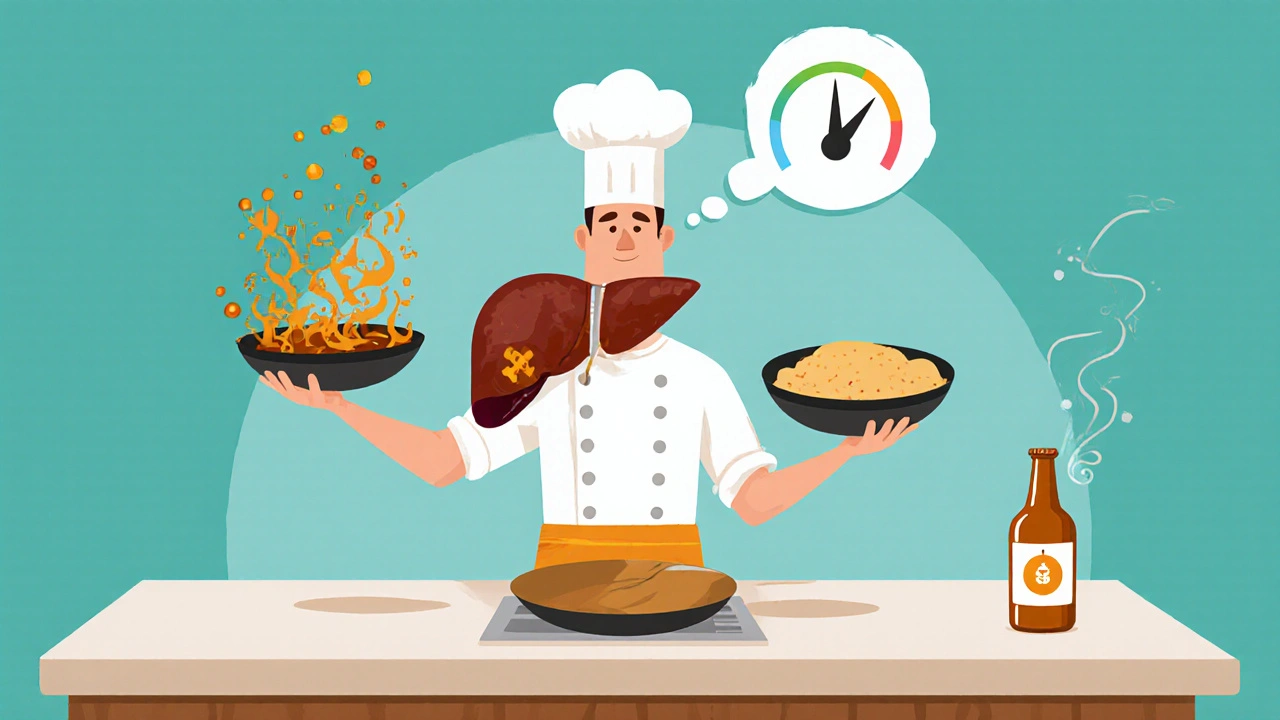Liver Effects of Diabetes: What You Need to Know
When you have diabetes, a condition where the body can’t properly regulate blood sugar. Also known as hyperglycemia, it doesn’t just mess with your energy levels—it quietly harms your liver, a vital organ that stores glucose, filters toxins, and helps process fats. The liver and diabetes are deeply connected, and ignoring this link can lead to serious, sometimes silent, damage.
Most people with type 2 diabetes also have fatty liver disease, a buildup of fat in liver cells that isn’t caused by alcohol. It’s not just a side effect—it’s a direct result of insulin resistance. When your body can’t use insulin properly, excess sugar turns into fat, and the liver becomes the main storage site. Over time, that fat causes inflammation, scarring, and can even lead to cirrhosis. Studies show over 70% of adults with type 2 diabetes have some degree of fatty liver, and many don’t know it until blood tests or scans reveal the damage.
This isn’t just about weight. Even people who aren’t overweight can develop liver issues from diabetes because the problem isn’t fat itself—it’s how your body handles sugar and insulin. High blood sugar levels stress the liver, making it harder to control glucose, which then makes diabetes worse. It’s a cycle: diabetes hurts the liver, and a damaged liver makes diabetes harder to manage. That’s why checking liver enzymes (like ALT and AST) should be part of every diabetes care plan.
You might not feel symptoms at first. No pain. No jaundice. Just fatigue, bloating, or vague discomfort. But by the time you feel something, the damage may already be advanced. The good news? Early action can reverse it. Cutting sugar, losing even a little weight, and getting regular exercise can shrink liver fat and improve insulin sensitivity. Some medications used for diabetes, like GLP-1 agonists, also help the liver directly.
What you’ll find in the posts below are real, practical insights into how diabetes affects liver function, what medications might help or hurt, and how to spot trouble before it’s too late. You’ll see connections between diabetes, liver enzymes, and common drugs—like how some pain relievers or cholesterol meds can add extra strain. You’ll also find tips on diet, testing, and lifestyle changes that actually work. This isn’t theory. It’s what people are seeing in clinics and labs right now.
Learn how alcohol interacts with diabetes meds, the risk of hypoglycemia, liver effects, and safe drinking tips for people managing diabetes.
Oct, 25 2025

